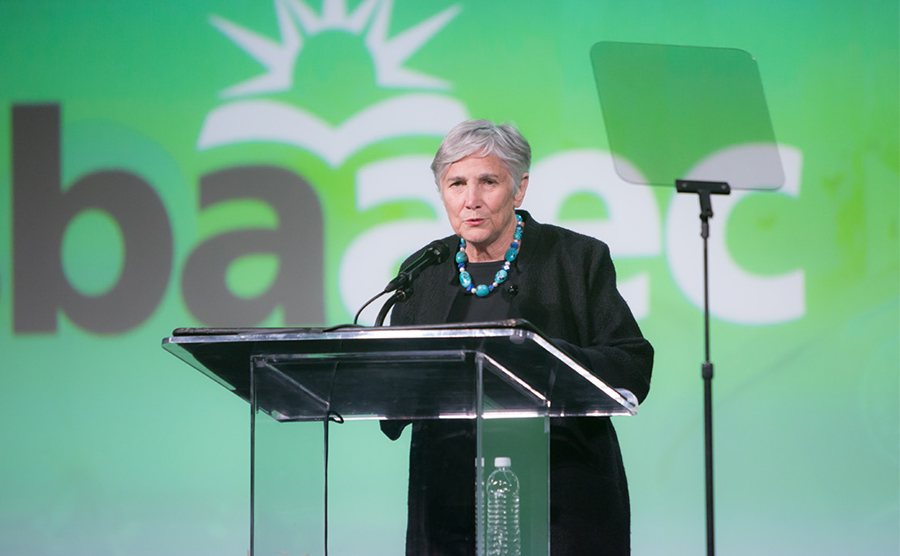
Ravitch walked the crowd through the history of education in the United States. “What is the purpose of public schools?” she asked. “From the beginning of their history, and until recently, their pur-pose was to develop good citizens, to nurture good character, to procure young men and women to sustain our democratic experi-ment into the future.”
She emphasized the role of public education in cultivating good citizens — young adults who can read and inform themselves about issues vote wisely for the nation’s leaders, lead independent lives, contribute to their communities and serve on juries.
“But now education only focuses on one thing: test scores,” Ravitch stated. Beginning with the Bush administration’s No Child Left Behind policy, test scores have become the sole focus of schools, she argued. Ravitch explained how NCLB set unattainable goals, caused the closure of too many struggling schools that just needed extra help and contrib-uted to the explosion of the charter school industry. She posited that the Obama administration’s Race to the Top initiative only perpetuated the problem.
Ravitch pointed out that the focus on standardized testing has whittled down school curriculum to “teach to the test.” She lamented the loss of a full school curriculum that includes arts, physical educa-tion, history, literature, science, mathematics and foreign languages. She also questioned the value of the tests themselves. If teachers and students cannot know what they got right or wrong, and only how they have done in comparison with other students, the test has no diagnostic value, she explained. “Unless the tests have diagnostic value, they have no value.”
The remainder of Ravitch’s speech focused on the charter school industry and the threat she believes it poses to public education. She cited a long list of charter school scams and failing charter schools, and emphasized the danger in privatizing education. “Every dollar that goes to a charter school is a dollar taken away from a public school,” she said. “Can California really support two school systems — one that accepts all students and one that chooses its students and doesn’t get better results?”
Ravitch offered suggestions on how to get the American public edu-cation system back on track, including leveling the playing field before children begin school by prioritizing prenatal care and high-quality early childhood education, reducing class sizes, providing a full and rich curriculum at every school, providing wraparound services — such as healthcare access, counselors and social services — at every school, and using tests diagnostically.